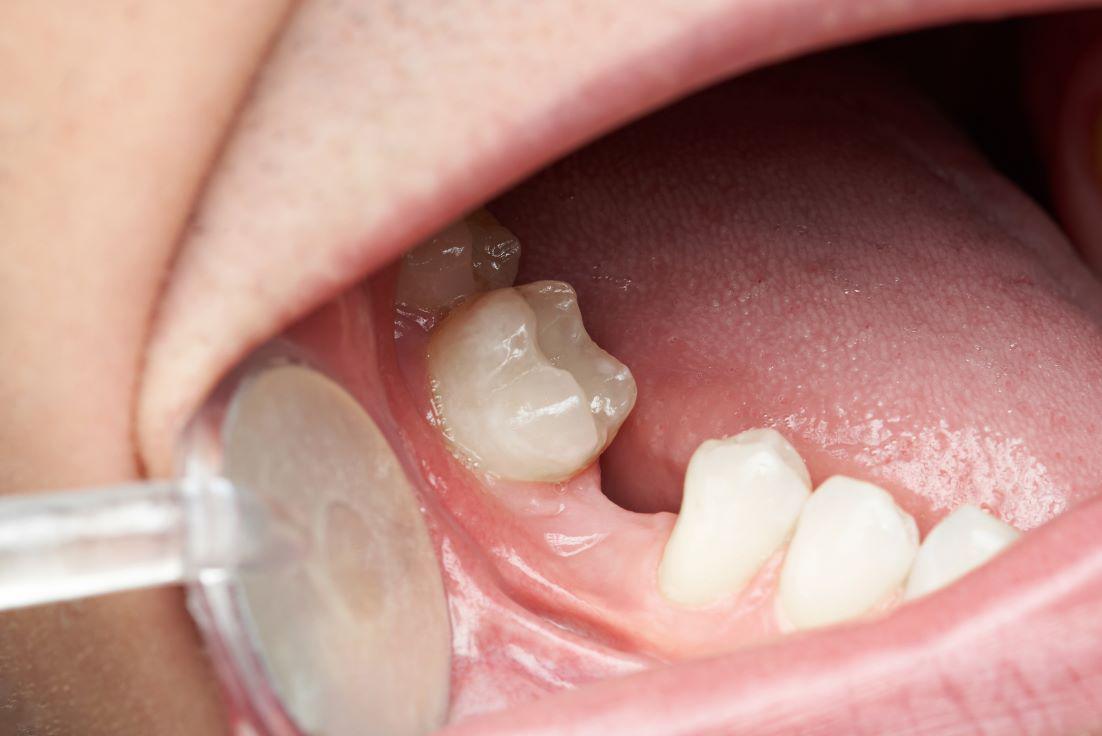 According to the American College of Prosthodontists, “120 million people in the U.S. are missing at least one tooth.” That’s more than 36 percent of the population!
According to the American College of Prosthodontists, “120 million people in the U.S. are missing at least one tooth.” That’s more than 36 percent of the population!
The most common causes of tooth loss include:
- Tooth decay (cavities)
- Gum disease
- Injury
- Cancer
- Aging
Complete tooth loss, or edentulism, affects more than 36 million Americans, mostly those in the geriatric population and the economically disadvantaged.
These statistics are staggering, and dental professionals are working around the clock to lower them. But, what happens when you’ve already lost one or more teeth? Do missing teeth need to be replaced?
Replacing missing teeth is highly recommended. In this blog, we discuss the issues associated with missing teeth and your tooth replacement options.
The Problem With Missing Teeth
Having one missing tooth, or even two missing teeth, shouldn’t be a big deal, right? Wrong. Any number of missing teeth can cause serious oral and overall health issues. Ultimately, tooth loss begets more tooth loss. So, if you have just one missing tooth, it’s very likely that more will follow if it isn’t replaced.
Here are a few of the most common problems people with missing teeth experience:
1. A limited, poor diet
Everyone knows we need our teeth to chew, but we rarely think about the consequences of not having a fully functioning mouth. What foods become difficult to chew if you don’t have all of your teeth? Mostly the healthy ones, like:
- Fresh fruits and vegetables
- Meat
- Nuts and seeds
- Whole grains
This means that when you suffer from tooth loss, your nutrition will likely suffer as well. Soft and processed foods don’t contain the nutrients we need to live healthy, full lives. Replacing missing teeth can help you gain the ability to chew nutritious foods again.
2. Poor oral health
Each tooth acts as a support for its neighboring teeth. When one falls out and isn’t replaced, the other teeth will move toward that open space. This can cause the teeth to become crooked or crowded, making it much more difficult to clean them.
Difficult-to-clean teeth often lead to issues of dental decay and gum disease. You can avoid these issues by seeking an effective tooth replacement option.
3. Jawbone loss
Did you know that your tooth roots stimulate your jawbone and keep it intact? So, when you lose a tooth, that area of the jaw begins to deteriorate. This contributes to tooth movement, further tooth loss, and can even make your face appear caved in.
4. Difficulty speaking
Depending on which teeth are missing, pronouncing certain words can become difficult. Teeth are particularly important for fricative and affricate sounds. These include:
/s/
/z/
/f/
/v/
/th/
/sh/
/ch/
/j/
Losing the ability to make these sounds can cause problems with articulation and communication in general, which can be frustrating for the person speaking and the person listening.
5. Low self-esteem
Ultimately, all these issues can lead to low self-esteem. If you notice that your missing teeth are causing you to feel self-conscious or think of yourself in a negative way, talk to a dental professional about your tooth replacement options. You deserve to live a happy and fulfilling life without worrying about the appearance of your smile.
Tooth Replacement Options
When you visit a dentist’s office, you will likely be presented with these tooth replacement options: dentures, a dental bridge, and dental implants.
Dentures
Removable full or partial dentures are a common tooth replacement option for older adults. These are easily removed from the mouth for cleaning but may take some time to get used to. The denture may feel tight or uncomfortable for the first few weeks, but over time, it will feel more natural.
Dentures help support your natural teeth, restore your ability to speak and eat, and improve your appearance. However, many people complain that their dentures aren’t stable enough due to jawbone deterioration. Because of this, dentures may need to be relined or replaced every year or so.
Dental Bridge
A dental bridge is made up of two parts:
- Pontic: the replacement for the missing tooth (or teeth)
- Crown: the caps that cover the two teeth on each side of the missing tooth
Bridges are affixed to your natural teeth with crowns, and the pontic or pontics fill in the gaps. This restoration can be used for patients who have one, two, or three missing teeth in a row.
Dental bridges are a great tooth replacement option because they look, feel, and function like natural teeth. One major disadvantage of a dental bridge is that it may weaken the teeth that are used to anchor it.
Dental Implants
Dental implants are highly recommended because they are highly secure, highly stable, and highly successful. This is the only tooth replacement option that replaces the tooth root, which is responsible for stimulating and strengthening the jawbone. Implants are known to last for decades and often never need to be replaced. Crowns, bridges, and dentures can be attached to dental implants to replace one or several missing teeth.
You may not be a candidate for dental implants if you are not healthy enough to undergo surgery, don’t have adequate jawbone density, or are not willing to abide by post-surgery rules.
Schedule Your Initial Consultation
Are you ready to restore the health and appearance of your smile? Our friendly dental team is ready to help you achieve that goal! Contact us today to schedule an initial consultation to discuss your tooth replacement options.








